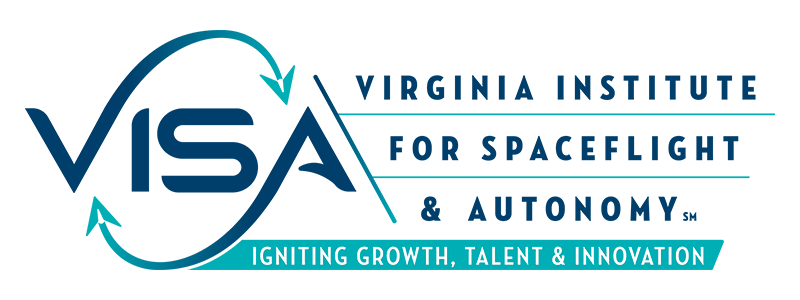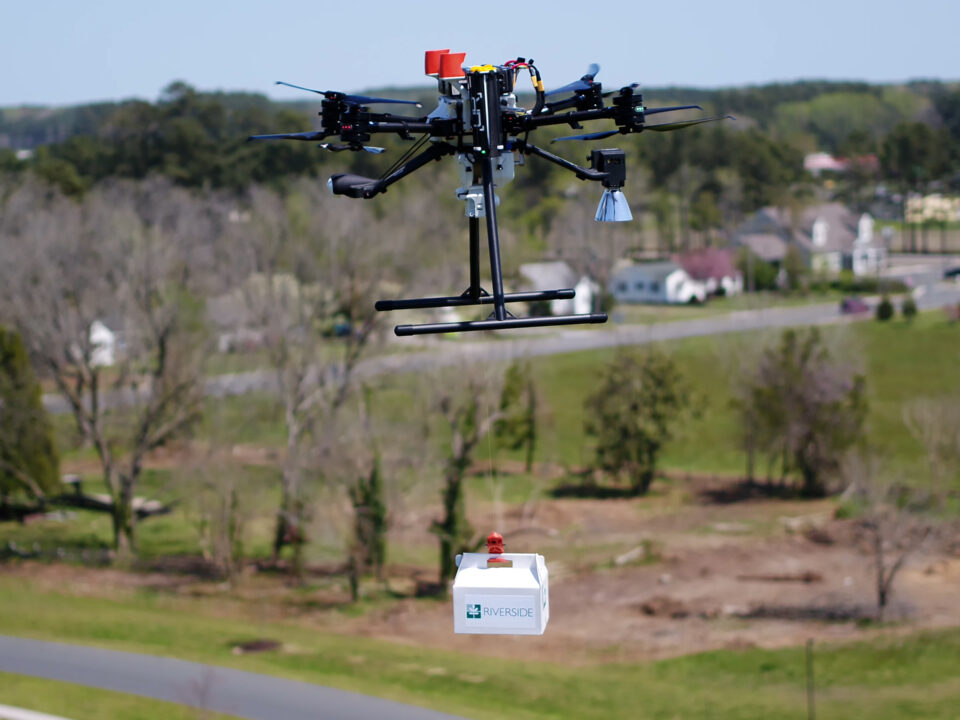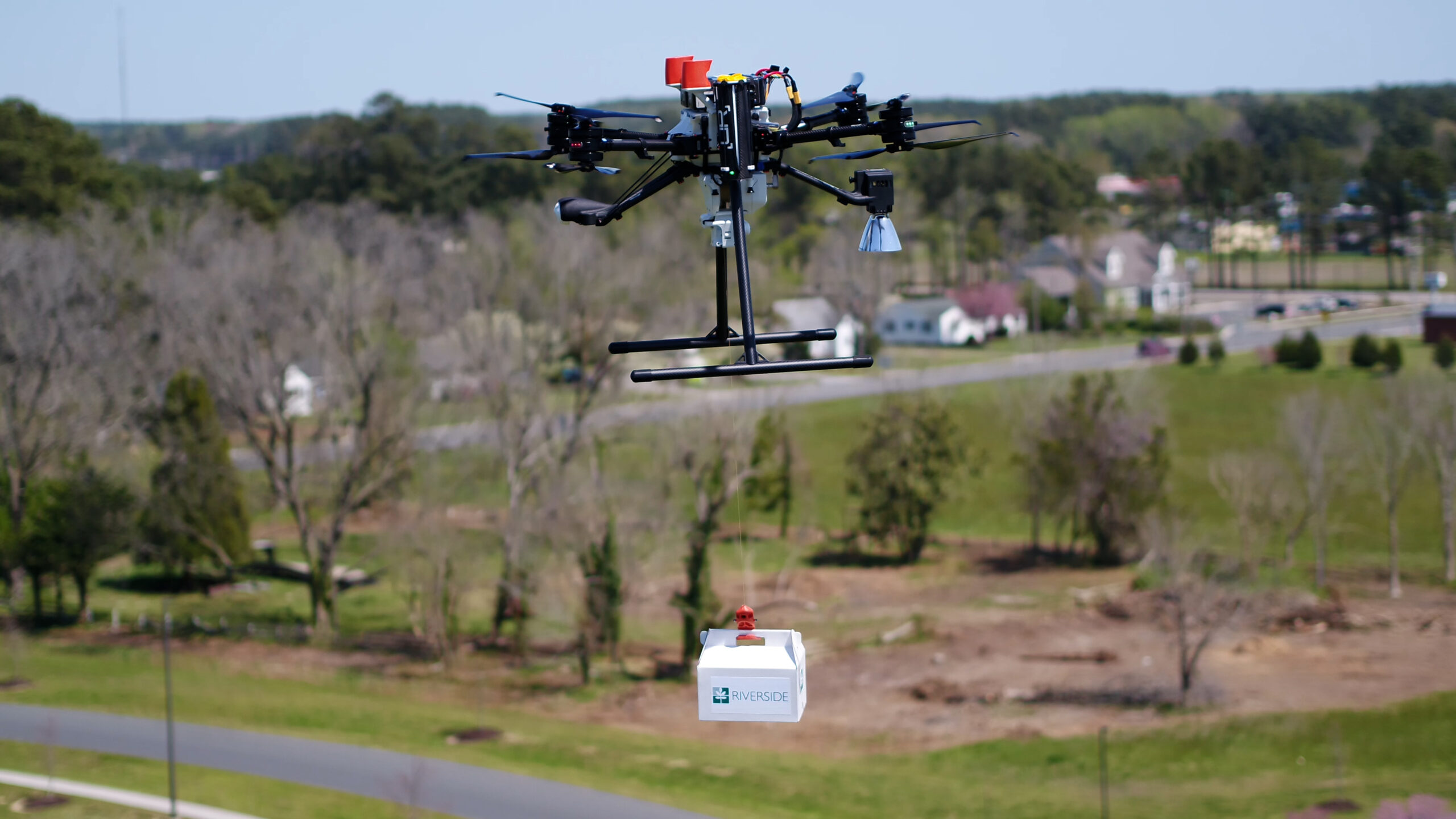
ODU’s VISA Partners on $1.8M Grant to Explore Medical Drone Deliveries on Eastern Shore
May 30, 2023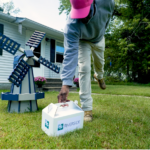
Virginia Partnership Launches First Delivery of Hypertension Medications to Patients via Medical Cargo Drones
October 10, 2023AMA demonstrates Autonomous Surface Vehicle for port security project sponsored by VIPC, VISA and VDEM
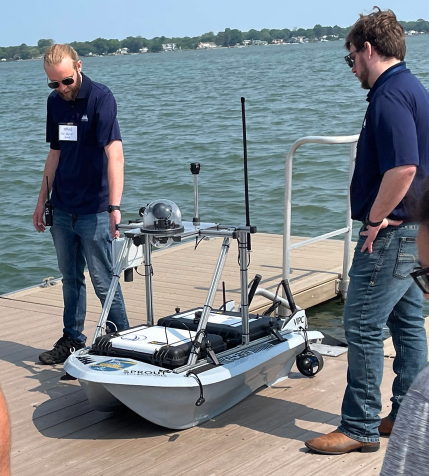
The ASV can autonomously patrol a designated area during emergencies, detecting hazards and capturing data to secure the Port of Virginia and Hampton Roads.
RICHMOND, VIRGINIA, UNITED STATES, July 5, 2023/EINPresswire.com/ — A low-cost modular Autonomous Surface Vehicle (ASV) equipped with cameras and sensors can provide first responders with an assortment of data for protecting and securing a major seaport, as Analytical Mechanics Associates, Inc. (AMA) recently demonstrated at Fort Monroe. The ASV demonstration was part of the Port Security and Emergency Response pilot project in Hampton Roads, which is sponsored by the Virginia Innovation Partnership Corporation (VIPC), the Virginia Institute for Spaceflight & Autonomy (VISA) at Old Dominion University (ODU) and the Virginia Department of Emergency Management (VDEM).
AMA, which is based in Hampton, created and initially tested the ASV in collaboration with the Virginia Modeling, Analysis and Simulation Center (VMASC) at ODU. The system integrates various components, including an electric propulsion system, an array of environmental sensors and cameras, autopilot, auxiliary processor, and long-range communication links.
“The ASV is an affordable and modular system that offers adaptable controls, seamless integration of security-ready sensors and easy expansion for new missions,” said Josh Baptist, software engineer at AMA. “Our sensor suite enhances daily tasks on an accessible platform that empowers education, government and commercial customers to quickly prototype their own systems.”
The ASV can assist public safety efforts during emergencies by autonomously patrolling a designated area. It detects air and water quality parameters, conducts seafloor inspections, and captures geolocated pictures using surface and underwater cameras. It also performs bathymetry, foreign body detection, and navigation to specific waypoints for emergency response and inspections. The system can also be operated remotely to provide a first-person view.
“The impact of a port closure after a major storm can cost millions in lost revenue each day. Traditional recovery procedures are time-consuming and often divert critical resources that could be better utilized elsewhere,” said Chris Sadler, the director of the Public Safety Innovation Center at VIPC. “The integration of unmanned surface vehicles such as the ASV revolutionize port operations, enabling swift and accurate assessments, optimizing public safety efforts and ensuring a faster return to normalcy.”
The ASV utilizes syncs with a data management server, facilitating the upload of sensor data and geotagged photographs. Additionally, the system employs a secure VHF frequency hopping link that enables real-time access to navigational and sensory telemetry. It allows operators to promptly take control of the system for emergency situations.
“This pilot project is assessing the feasibility of unmanned systems for a variety of tasks, such as patrolling waterways, inspecting infrastructure and providing situational awareness to first responders, said Tracy Tynan, the director of the Unmanned Systems Center at VIPC. “The project is completing the demonstration phase, but the early results have been promising and show how unmanned systems can significantly improve safety and efficiency.”
Launched in 2021, the primary objective of the pilot project is to evaluate the potential benefits and capabilities of unmanned systems for addressing a range of security and emergency response challenges identified by public safety agencies operating in Hampton Roads. The region is the state’s most densely populated area with six of its 10 major cities as well as the Port of Virginia. There are also prominent defense and government research centers, including Naval Station Norfolk and NASA Langley Research Center.
“The diverse landscape of Hampton Roads provides a rich and complex environment to assess the capabilities of unmanned systems, ranging from coastal areas to urban centers and important infrastructure,” said Dr. David Bowles, the executive director of VISA. “This project aims to provide valuable insights into how unmanned systems can augment operations, enhance security, and improve emergency response in this dynamic and strategically vital region.”
The Center for Naval Analyses (CNA), a federally funded research and development center headquartered in Arlington, will publish a report this summer analyzing the benefits of the demonstrations included in the pilot project. CNA provides research, analysis and advice to the United States Navy, Marine Corps, and Department of Defense. The report will assess the effectiveness of the technology demonstrations and make recommendations for future use of the technology.
About Virginia Innovation Partnership Corporation (VIPC): VIPC: Connecting innovators with opportunities. As the nonprofit operations arm of the Virginia Innovation Partnership Authority (VIPA), VIPC is the commercialization and seed stage economic development driver in the Commonwealth that leads funding, infrastructure, and policy initiatives to support Virginia’s innovators, entrepreneurs, startups, and market development strategies. VIPC collaborates with local, regional, state, and federal partners to support the expansion and diversification of Virginia’s economy. Programs include: Virginia Venture Partners (VVP) | VVP Fund of Funds (SSBCI) | Virginia Founders Fund (VFF) |Commonwealth Commercialization Fund (CCF) | Petersburg Founders Fund (PFF) | Smart Communities | The Virginia Smart Community Testbed | The Virginia Unmanned Systems Center | Virginia Advanced Air Mobility Alliance (VAAMA) | The Public Safety Innovation Center |Entrepreneurial Ecosystems | Regional Innovation Fund (RIF) | Federal Funding Assistance Program (FFAP) for SBIR & STTR | University Partnerships | Startup Company Mentoring & Engagement. For more information, please visit www.VirginiaIPC.org. Follow VIPC on Facebook, Twitter, and LinkedIn.
About VISA: The Virginia Institute for Spaceflight & Autonomy (VISA), located on the Eastern Shore, is chartered to grow the entrepreneurial ecosystems for space flight and autonomy. The Institute is the hub to leverage Virginia’s world-class assets in space launch, autonomous systems, modeling and simulation and data science to solve real-world problems. Through industry, academic and governmental agency partnerships, VISA’s vision is to create an environment of research, technology, commercialization, and educational opportunities to grow the spaceflight and autonomous systems industry. For more information, please visit www.visaatodu.org.
About VDEM: VDEM’s mission is to lead Virginia’s efforts in prevention, protection, mitigation, response, and recovery to save lives and safeguard all Virginians, with a focus on under-resourced communities and equity. We ensure the security and resilience of every community in the state and drive fair mitigation and recovery outcomes. VDEM enhances readiness by planning for all hazards, improving our statewide response system, and conducting joint training and exercises involving local, state, federal governments, private sector partners and NGOs. For more information, please visit www.vaemergency.gov.
About AMA: Since 1962, AMA has worked with government and commercial organizations solving tough engineering, science, math, and business problems. AMA combines the best of engineering, science, and mathematics capabilities with the latest in analytics, information technology, and visualization to build innovative solutions. For more information on Analytical Mechanics Associates, please visit www.ama-inc.com.
Angela Costello, Vice President of Communications
Virginia Innovation Partnership Corporation (VIPC)
angela.costello@VirginiaIPC.org
Visit us on social media:
Facebook
Twitter
LinkedIn


